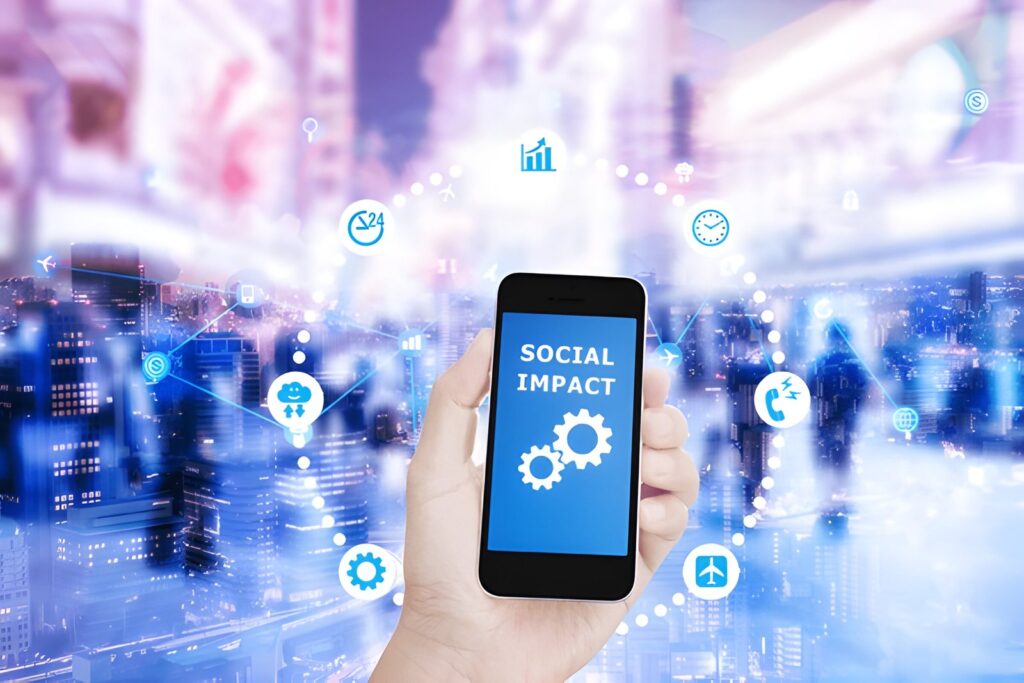Human beings are social animals, to remain mentally healthy and happy we require social interactions, and social media provides us with just that. Even though interactions are necessary, excess of anything causes harm. Social media such as Instagram, Facebook, X, etc, are now the main sources of updates, whether they are new trends, information or entertainment. However, its impact on mental health is a rising concern among researchers, healthcare workers and the public. According to research in Uttar Pradesh and Bihar under the UDAYA project, the study showed a significant cross-section between social media usage and depression among young adults in India.
How does social media control minds?
We as humans often question their existence and wonder whether or not we have free will. This question has been here for a very long time, long before you and me. But the answer still manages to conceal itself in the midst of mysteries. Such philosophical masterpieces and paradoxical thoughts kept the human race up at night and gave them a purpose to grow and explore themselves.
Now, our looks, personality and our traits, all depend on the likes on instagram. Social media is designed to be highly engaging and manipulating, they do it by sneaking a peek in your daily life, listening to your conversation to give you exactly what you crave, leading you to the endless loop of mindless swiping and scrolling. Social media exploits the brain’s reward system by offering validation in the form of likes, shares, and comments, releasing dopamine. This makes users crave more engagement, leading to compulsive use.This constant habit of being on these apps in the long term causes addiction.
Causes of social media addiction
The impact of social media causes long term problems such as:
- Low self-esteem and comparing yourself: The celebrities and influencers present with unrealistic standards and lifestyles, leading 70% youths to feel worse about their looks or body image (according to RSPH).
- Increased isolation and loneliness: Studies have shown the daily usage of social media for more than two hours creates twice the risk of feeling socially isolated.
- FOMO (Fear of missing out): Eventbrite reports that 69% of millennials experience FOMO, driven by social media, causing anxiety over missing out on experiences.
- Anxiety or depression: The constant need to be approved by the society by following trends or waiting for comments, are found to cause anxiety and depression among teens and young adults.
- Social anxiety and embarrassment: The ADAA found that 36% of people with social anxiety disorder feel their anxiety is worsened by social media interactions and the pressure to maintain an online image.
Even though social media has a lot of cons it does have some benefits that make our life more convenient.
- Connectivity and support: Social media creates a sense of belonging, especially for the individual who feels isolated.
- Self-Expression: It provides you an excellent platform to express yourself, share your opinion and get input on the things that require public suggestion.
- Access information: Social media is a valuable tool for accessing information on mental health, including resources, advice, and stories from others who have experienced similar challenges and encourages the individual to seek help.
Even though social media has a lot of ill effects we can follow some simple tips to minimize it and enjoy its benefits more securely.
Solutions
Set time limits: Setting a time limit for how long you can access social media will help you avoid the risk of addiction.

- Curate your feed: Follow and focus on the accounts that post something informative, positive, inspiring and educating.
- Digital detox: As social media can give a dopamine spike, try to dedicate a day every month where you reset your mind and prevent yourself from burnout.
- Balance online and offline life: Spend more time with the people you feel happy with and strengthen your relationship with them. This will make you feel more happy and alive, leading to a huge improvement of your current mental health.
Conclusion

While the impact of social media on mental health can be a complex issue. It offers valuable opportunities of learning, exploring and allows us to express ourselves.The constant exposure to idealized content, fear of missing out and pressures of online validation can exacerbate feelings of inadequacy and loneliness. By understanding this and by following the simple self care tips, you can create a beautiful balance of your social life and make yourself more happy and healthy mentally. Thrive through every chapter.

